Because Marquette is located near numerous homeless shelters, including the Milwaukee Rescue Mission, the Guest House of Milwaukee and the Milwaukee Women’s Shelter, encountering individuals who may be displaced or homeless on or around campus is a possibility for students every day.
However, advice on how to approach these encounters differs greatly from one source to another. When approached by a homeless individual asking for assistance, some may advise giving small sums of money while another might recommend avoiding an encounter altogether.
Anna Evers, a first-year student in the College of Health Sciences, said she was given many suggestions, oftentimes conflicting, about what to do in such situations.
“Coming from a smaller town where it wasn’t a problem, seeing homelessness every day was new for me,” Evers said. “I was told by some to ignore (homeless individuals), but avoiding eye contact and putting your head down doesn’t seem to help anyone.”
Another first-year student in the College of Engineering, Rowan Mobley, said she was also given similar advice before coming to Marquette for her college education.
“I grew up in Chicago where each day I would see homeless people ignored by everyone who walked by,” Mobley said. “I understand why someone would do something like that, but it’s still hard to see.”
Evers and Mobley are not alone in their uncertainty of the most respectful and constructive way to interact with those in the community experiencing homelessness or displacement.
“It’s difficult to access every situation with a uniform answer,” assistant director of Campus Ministry Griffin Knipp said.
Knipp is the coordinator of the Midnight Run, a service program at Marquette dedicated to helping and understanding those in need with a focus on hunger and homelessness.
“I recommend doing whatever you feel is most comfortable and safe for you in that moment,” Knipp said. “Some are uncomfortable interacting with homeless people at all, and if that’s the case, that particular person should address why it is they feel that way.”
Knipp said he personally does not give money to homeless people. Instead, he recommends food or water, since there usually isn’t a way to discern someone’s relationship with addictive substances like drugs or alcohol.
Many individuals who suffer from substance abuse often struggle to manage their funds and may spend harmful amounts feeding their addictions. Giving away everyday amenities is a simple way to ensure whatever one gives is in fact bettering another’s quality of life.
Knipp also hands out informative cards detailing how and where to receive critical resources such as counseling and affordable housing.
Dan Brown, vice president of programs at the Milwaukee Rescue Mission, said engagement with the homeless in the community needs to go beyond everyday interaction. Brown said it’s also essential to understand homelessness and its causes as an issue in our broader community.
The Rescue Mission is a faith-based shelter located a few blocks from Marquette’s campus, offering both short- and long-term assistance to those in need. According to the Rescue Mission’s website, the facility not only provides food and shelter but an array of services including educational and job training programs as well as volunteer opportunities.
“We all have an obligation to be aware of those around us,” Brown said. “Which includes understanding the problems of others.”
According to 2017 estimates from the U.S. Census Bureau, the national poverty rate is approximately 12.3%, however, this statistic more than doubles within the city of Milwaukee.
Around 26% of individuals living in the city fall below the poverty line, according to the latest data from the U.S. Census Bureau, which has substantial implications for Milwaukee’s homeless population. The 2019 Milwaukee Continuum of Care report found there to be around 885 homeless individuals on any given night.
The National Law Center on Homelessness and Poverty reports a variety of causes for homelessness including lack of affordable housing, unemployment, poverty, substance abuse and mental illness.
“It’s a complex issue,” Eric Collons-Dyke, outreach services manager of Milwaukee’s housing division, said. “There isn’t a single organization, group or neighborhood that’s going to fix (homelessness). It’s going to take everyone — the whole community.”
This story was written by Nicole Laudolff. She can be reached at nicole.laudolff@marquette.edu.

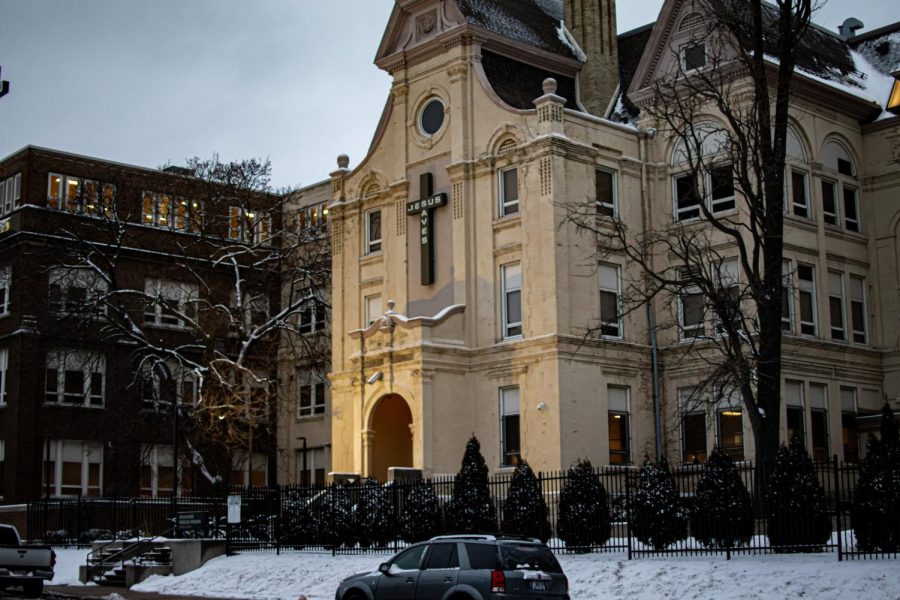
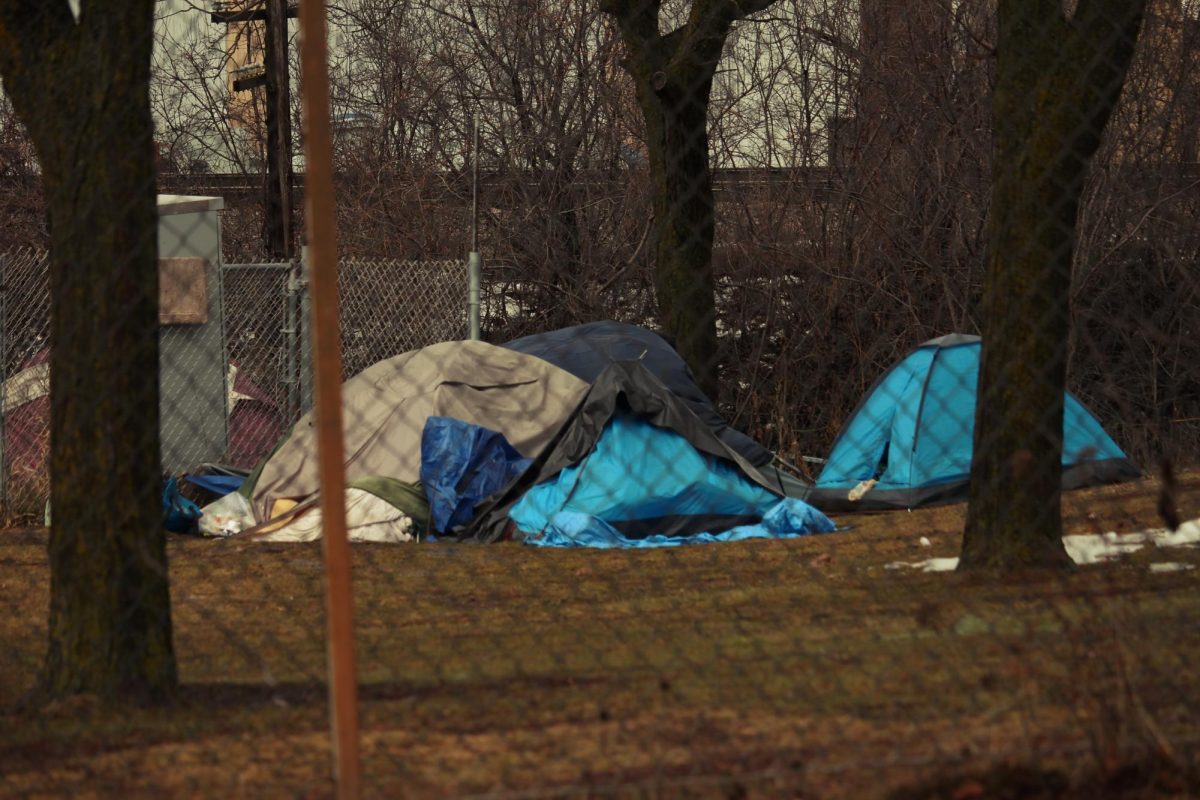


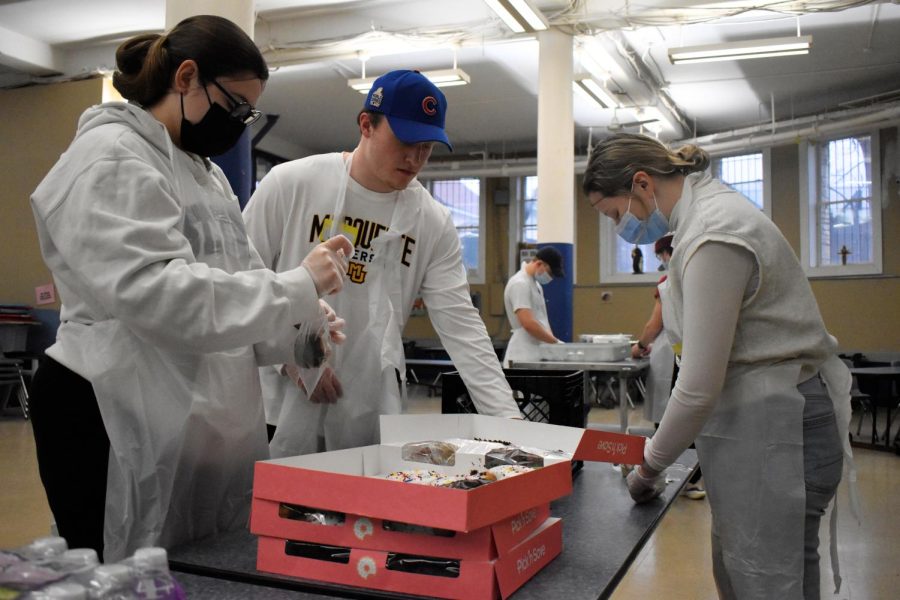

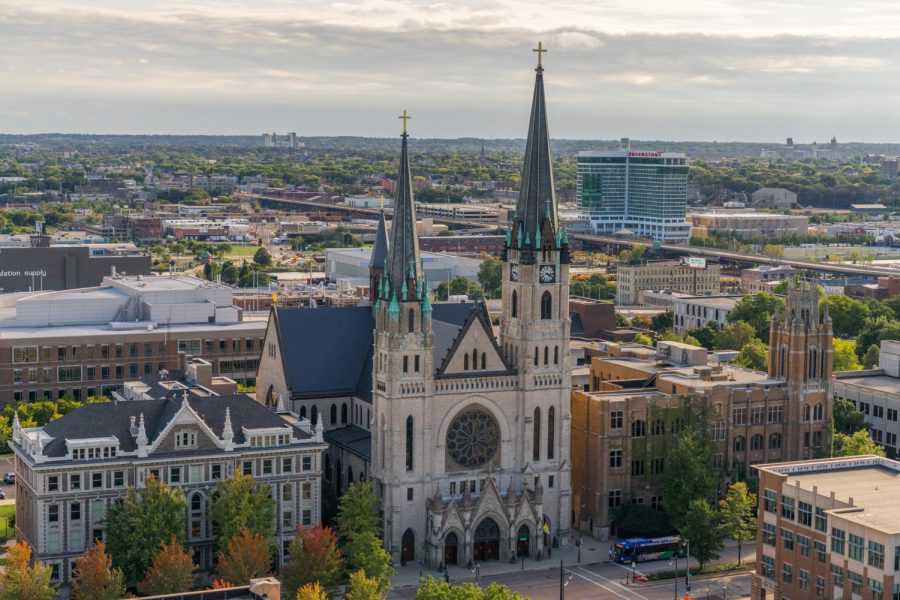
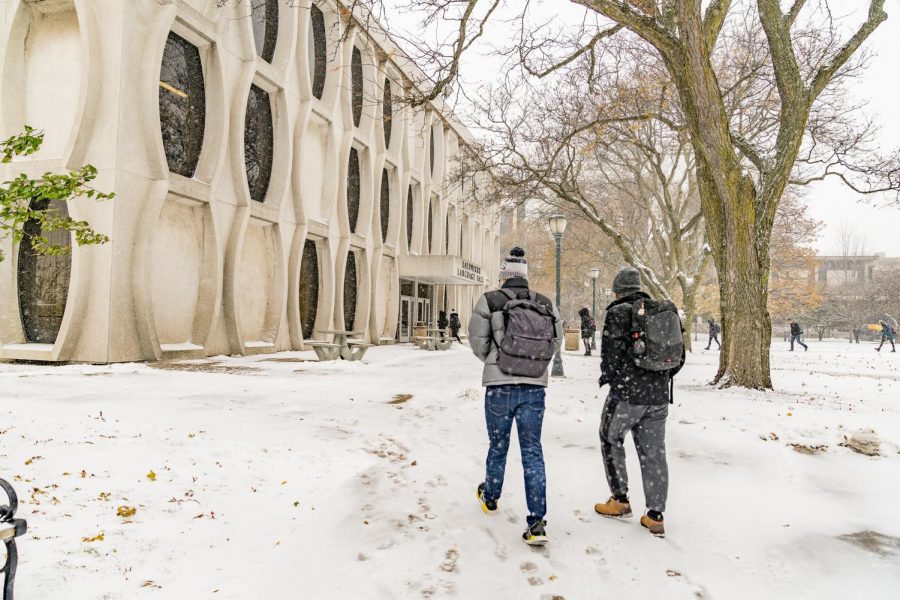
Jk Rees • Jan 14, 2020 at 3:53 pm
Homelessness tends to demonize the individual rather than the systems that perpetuate increased likelihood’s of homelessness and lack of security. This article reaches the troubling question that follows nearly all Marquette student on what the appropriate response to an individual struggling with homelessness is but not what the Milwaukee homeless demographic is. That is a huge issue that is often form my perspective and experience ignored by Marquette students. This article is informative in the sense it reaffirms the dread of homelessness around Marquette but does not pinpoint external issues that lead to homelessness in Milwaukee and if students should hold themselves to a certain moral obligation or standard to actively help.